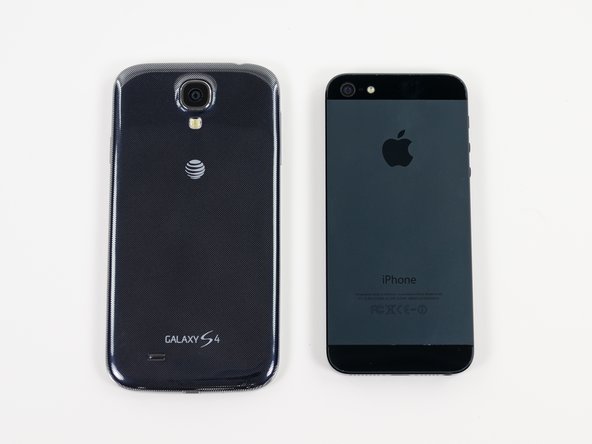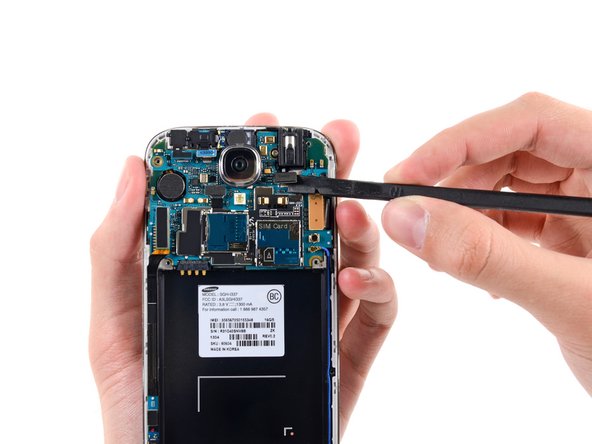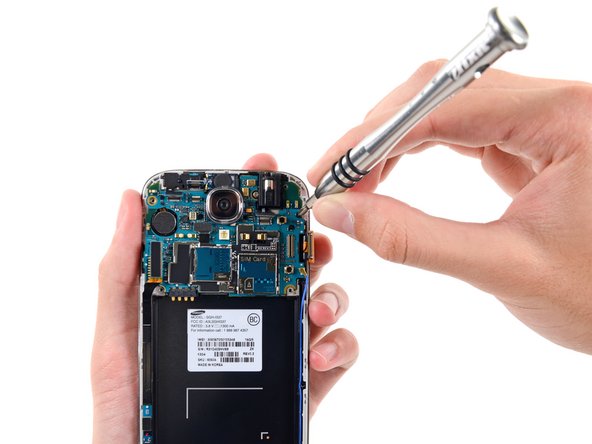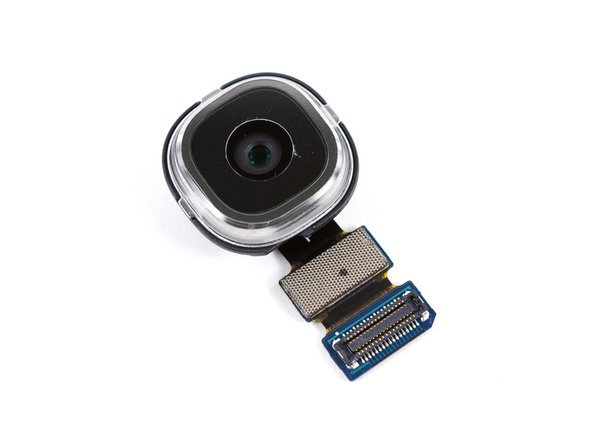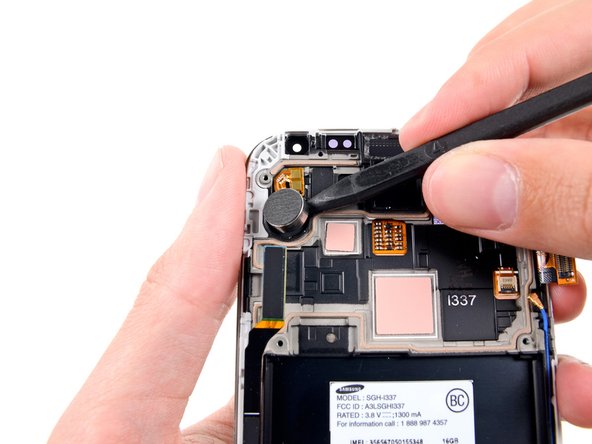News
Samsung Galaxy S4 Teardown
Date: 01-24-2018 Click: 0Video Overview
Step 1 Samsung Galaxy S4 Teardown
With the newest addition to the Galaxy S line, Samsung has decided to ditch the roman numerals. Let's take a look into the specs of the Galaxy S4 (not SIV):
5" display with a resolution of 1920 x 1080 at 441 ppi (just shy of the HTC One's 468 ppi)
16, 32, or 64 GB of internal storage, expandable with up to 64 GB of external microSDXC storage
2 GB RAM
13 MP rear-facing camera and 2 MP front-facing camera
Step 2
Straight out of the box, we are already sighing with relief…it's a removable battery!
This trend makes us oh-so-happy! Samsung is doing the right thing for their customers and the environment.
Not only is the battery removable, it even comes removed! The rear panel rests upside-down on the device, so we don't even have to release any clips to open it up.
Resting in the battery cavity is our micro-SIM card delivery system: an advanced piece of plastic from whence the micro-SIM card came. It provides super-important numbers for the life of your micro-SIM card, all in one easy-to-lose thin piece of plastic!
Step 3
We know it may be comparing Apples to Oranges, but we are tempted to see how Samsung's S4 differs from Apple's latest: the iPhone 5.
The S4 rocks a 5" full HD Super AMOLED display, compared to the iPhone 5's Retina display, which is a 4" IPS LCD.
The Galaxy S4 is considerably larger than the iPhone 5, clocking in at 5.38" x 2.71" x .31" and weighing 4.6 ounces. The iPhone 5, for comparison, measures 4.87" x 2.69" x 0.30" and weighs 3.95 ounces.
Both phones are available with 16, 32, or 64 GB of internal storage, but the S4 also offers up to 64 GB of microSDXC storage.
Step 4
One of the acclaimed new features of the S4 is Smart Pause, which automatically pauses video playback when the user looks away from the screen.
Like all good "Life Companions," the S4 wants the attention it deserves—when it's talking to you, you'd better be looking!
It wasn't long after we started playing with Smart Pause for ourselves that we knew we'd have to find a way to trick it...
The S4 was reluctant to recognize our Iron Man poster or our office Chia Gnome as human faces, but in the end we managed to find a way to fool it.
Step 5
After a quick test drive, it's time to take the battery back out and get to work. New software features are cool, but we're much more interested in getting down to what powers them.
The back panel is as easy to remove as they come—a fingernail in the groove is all you need to get this phone open.
Step 6
You put the battery in, you pull the battery out, you put the battery in…and you shake it all about!
The lithium-ion battery is rated at 3.8 V and 2600 mAh (9.88 Wh). Its advertised useful life allows for up to 7 hours of talk time, and up to 12.5 days of standby.
Step 7
With no time to waste, we slide the pre-installed micro-SIM card out of the way.
Just like in the previous iteration, a few screws hold the plastic midframe in place.
We were hoping that we'd find a magnesium midframe like in the S4's great-grandparent. Alas, it looks like we won't be playing with fire in this Galaxy.
Step 8
After removing the screws, there are still a few clips securing the plastic midframe of the S4 in place.
They are easily released with the help of a plastic opening tool, a tool that is truly out of this world. Our first view of the circuit board is rather familiar.
Remaining in the midframe are the springy volume and power buttons, amply-sized speaker, and a liquid damage indicator.
Step 9
With little effort, we remove the speaker assembly from the midframe.
Unlike the dual front-facing speakers in the HTC One, the S4 keeps its primary speaker down at the bottom of the back of the phone.
This is the prime location for a speaker if your ears are attached to your hand while holding the device.
While the sound quality may not be hot and fresh out the kitchen, the speaker does pack quite the punch and can pump out your favorite mashups loud and clear.
Step 10
With the midframe off, several connectors and a single screw are all that hold the motherboard in place. Our two favorite tools are all we need to get it out.
Just how great does Samsung think their phone is? If you couldn't tell from their unveiling show, an internal stamp informs us this device is straightup 1337.
Step 11
Before we can examine the motherboard, we need to pull off the rear-facing camera.
The gravitational attraction between the motherboard and the camera as we pull them apart is roughly 0.0000000000098 Newtons, so this task is easily accomplished by our team of strapping young technical writers.
Very much unlike HTC's recent disregard for the megapixel race, Samsung has opted for a rear-facing camera boasting 13 megapixels. It also sports the now-standard LED flash, a back-illuminated sensor, and the ability to record full 1080p HD video at 30 fps.
Step 12
Resting atop the motherboard is the SIM/microSDXC board.
On one hand, the modular design of this component makes it possible to replace if you happen to jam something into one of the two slots—although you will need to replace both at once.
On the other hand, the adhesive securing it to the motherboard makes it something you wouldn't replace unless you had to.
Step 13
Qualcomm MDM9215M 4G GSM/UMTS/LTE modem
Qualcomm PM8917 power management
ARM Holdings MBG965H (right)
Samsung K3QF2F200E 2 GB LPDDR3 RAM (we suspect the Snapdragon 600 APQ8064T 1.9 GHz Quad-Core CPU lurks below)
Toshiba THGBM5G7A4JBA4W 16 GB eMMC (eMMC integrates a NAND flash memory and a controller chip in a single package)
Qualcomm WCD9310 audio codec
Broadcom BCM4335 Single-Chip 5G Wi-Fi MAC/Baseband/Radio (thanks to a tip from a user, and our friends at chipworks, we believe there's something underneath this chip)
Bosch Sensortec BMP180 barometric pressure sensor (left) - Samsung outputs the height in meters as second parameter.
Step 14
Reflowing the Broadcom module off the motherboard reveals a stow-away located beneath it: a Skyworks SKY85303-11 2.4 GHz, 256 QAM WLAN/Bluetooth® Front-End Module.
Step 15
Moving over to the other side of the Galaxy:
Skyworks 77619 power amplifier module for quad-band GSM/EDGE
Qualcomm WTR1605L seven-band 4G LTE chip (same one found in the Nexus 4)
SWA GNF09
Broadcom 20794S1A standalone NFC chip
Maxim MAX77803 microcontroller
Silicon Image 8240BO MHL 2.0 transmitter
Qualcomm PM8821 power management IC
Step 16
…and we were right! Concealed under the Samsung LPDDR3 IC is the Snapdragon 600 APQ8064T 1.9 GHz Quad-Core CPU.
The Qualcomm applications processor package is labeled as APQ8064.
If you're wondering what happened to the Qualcomm MDM9215M modem, it was sacrificed in the name of science.
Samsung recently came under fire for using tin solder that comes from highly dangerous mines in Indonesia. Friends of the Earth raised the issue with a visible #makeitbetter campaign—including signs in front of Samsung's office.
Just last week, Samsung announced they have changed their policy. Good for them! Apple has refused to state whether they are using dangerous mines to produce the iPhone.
Step 17
With the motherboard out of the way, we can focus our efforts on removing components attached to the front of the device.
The first component out is the standard 3.5 mm headphone jack. A swift flick of our trusty spudger, and poof! It's out!
Samsung left no useful space un-adorned with extra components—the headphone jack is home to the status LED and the first of a pair of IR sensors.
Step 18
Some precise tweezing helps us excavate the front-facing camera from the S4.
The 2 MP front-facing camera is utilized by the S4's new dual-camera feature, because the only thing better than pictures of food are pictures of people taking pictures of food.
Step 19
Poke poke, flick flick, tweeeeeze!
With all of the easily-removed components out of the way, we get to work peeling up the remaining, slightly-adhered parts filling the Galaxy S4's display assembly.
First out is a multi-purpose component that connects the earpiece speaker, IR blaster, and a sensor array hosting the ambient light sensor and a second IR sensor.
The placement of the two IR sensors on either side of the earpiece speaker explains how Samsung's new Air View/Air Gesture feature operates. By comparing IR light reflected from your hand into each of the sensors, the phone can track sideways motion as you gesture without touching the screen.
Step 20
The next victim of our anti-adhesive prying campaign is the vibrator motor.
The S4 features a linear oscillator vibration motor, similar to those found in its Android brethren, the Nexus 4 and Galaxy Nexus.
This particular motor is labeled 53329 34AVCV.
Step 21
The daughterboard is home to the full-featured micro USB port. With MHL and USB OTG support, users can use this port for HDMI output and USB peripherals in addition to charging and transferring data.
Removing the daughterboard from the device, we get a view of some of its secrets.
Sensirion SHTC1 humidity and temperature sensor
RFMD RF1119 antenna controller
S1029 6914 (this one appears to be a voice microphone)
Step 22
The front panel assembly is the final piece to the puzzle.
Unfortunately, the display and front glass are fused, with a layer of optical adhesive. The glass is then adhered to the plastic display frame, making a single assembly. Not a big surprise.
Getting a look at the second liquid damage indicator on the back of the screen, and—whoa, what's this hiding down there?
Looks like we've spotted the touchscreen controller, a Synaptics S5000B.
This chip is responsible for the S4's super-sensitive touchscreen, which even works with gloves.
Step 23

Samsung Galaxy S4 Repairability Score: 8 out of 10 (10 is easiest to repair)
Products Sort
- Finger Spinner
- Apple Mobile
- Samsung Mobile
- Xiaomi Mobile
- Huawei Mobile
- LG Mobile
- Motorola Mobile
- Sony Mobile
- Asus Mobile
- OPPO Mobile
- Meizu Mobile
- Vivo Mobile
- LeEco Mobile
- Mobile Phone TOOLS
- PlayStation4
- PlayStation3
- PlayStation2 & PS1
- PSP1000/2000/3000/Go/PSV
- Xbox360 & Xbox & One
- Wii & GameCube
- NDS lite/NDS-i/3DS/3DS XL/2DS
- ND & GBA
- Memory Card
- DS Flash Card
- ModChip
- Other accessories
- Samsung Galaxy S4 Teardown






